We love certain movies for many different reasons. Some that we saw as kids have an almost supernatural pull on our psyche. Others had a profound effect when we first saw them and continue to cast a spell through the years. For me one of those films is Sylvia, a 1965 potboiler from Paramount Studios starring Carroll Baker and George Maharis.
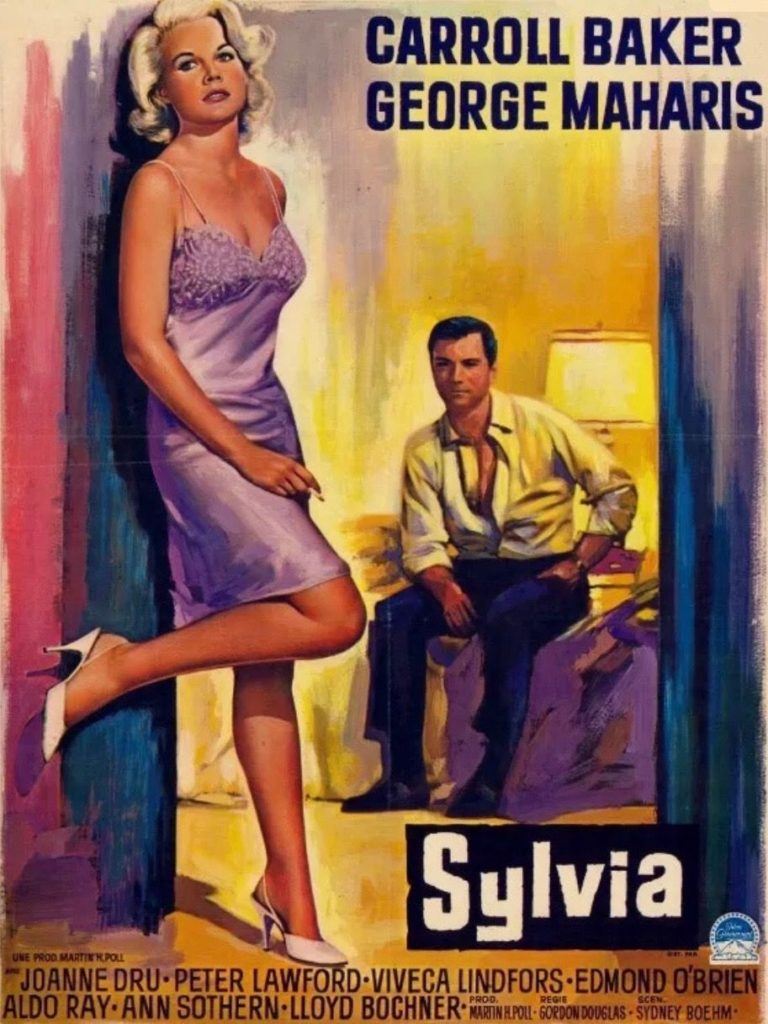
Produced by Joseph E. Levine, this was part of a group of films that attempted to turn the Actors Studio-trained Baby Doll star Carroll Baker into a blonde sexpot. The Carpetbaggers and Harlow were also part of this strategy. Based on a book by E. V. Cunningham, Sylvia is the story of Alan Macklin (George Maharis), a private investigator summoned to the mansion of millionaire Frederic Summers (Peter Lawford), who hires Macklin to find out information on his mysterious fiancé Sylvia West (Carroll Baker). West lives comfortably, from smart investments, cultivates prize roses as a hobby and has written a book of poetry. But her past is an enigma. “I want to know who she is,“ Summers says to Macklin. “I want to know everything there is to know about Sylvia West. Everything a prospective husband has the right to know.” The movie is Macklin’s investigative journey through the sordid, often heartbreaking, background of this fascinating woman of mystery.
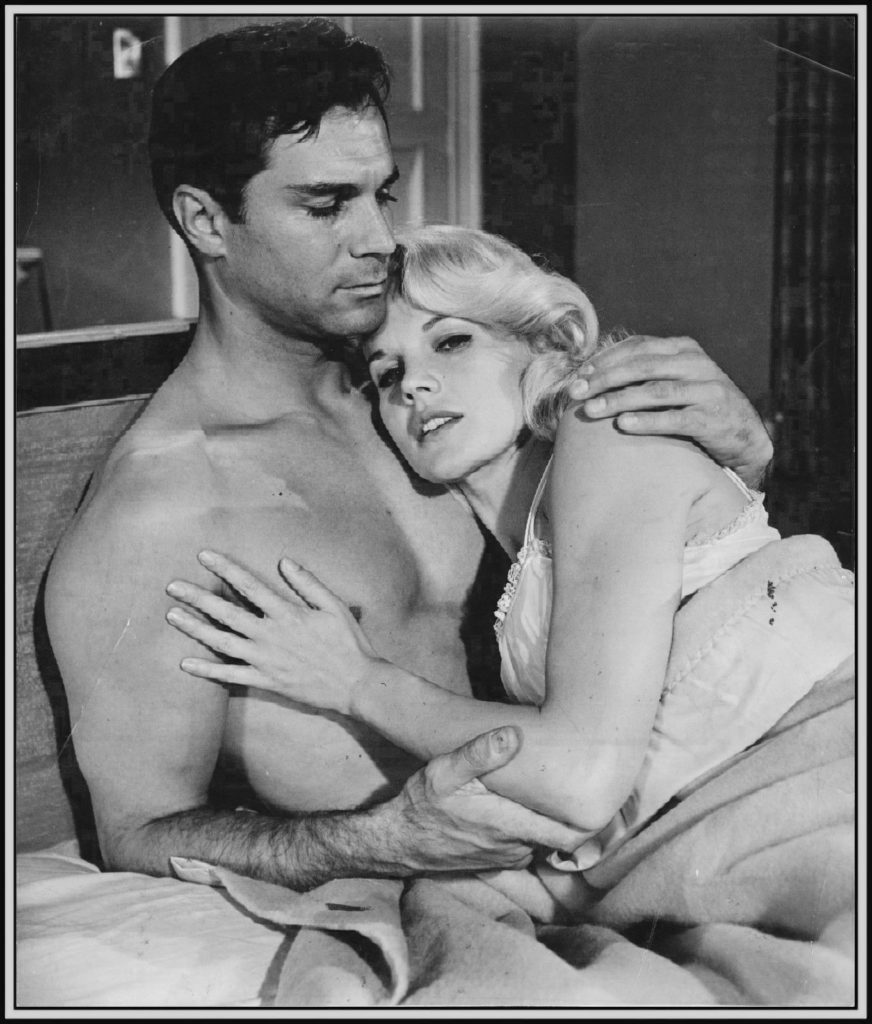
Sylvia wasn’t a box-office smash by any means. Bosley Crowther of the NY Times called it a, “hopelessly cheap and mawkish tale,” and went on to say, “It is hard to tell whether Carroll Baker as the heroine is worse than the script. Both are incredibly awful.” But remember, Crowther called Jean Cocteau’s Orpheus “tiresome;” Bonnie and Clyde, “a cheap piece of bald-faced slapstick comedy,” and Alfred Hitchcock’s Psycho “a blot on an otherwise honorable career.”
I loved the movie when I saw it first-run. I’ll admit I adored the ludicrous melodrama and trashiness of it first and foremost. And I always had a soft spot in my heart for Carroll Baker, whose Baby Doll performance is wonderfully sly, sexy and smart. George Maharis I remember, lustfully, from TV’s Route 66, where he played the brooding hunk Buz Murdoch alongside Martin Milner. (I also remember his memorable nude layout in Playgirl magazine years later). And Sylvia was filled with wonderful co-stars like Vivica Lindfors, Ann Sothern, Joanne Dru, Edmond O’Brien and Aldo Ray.
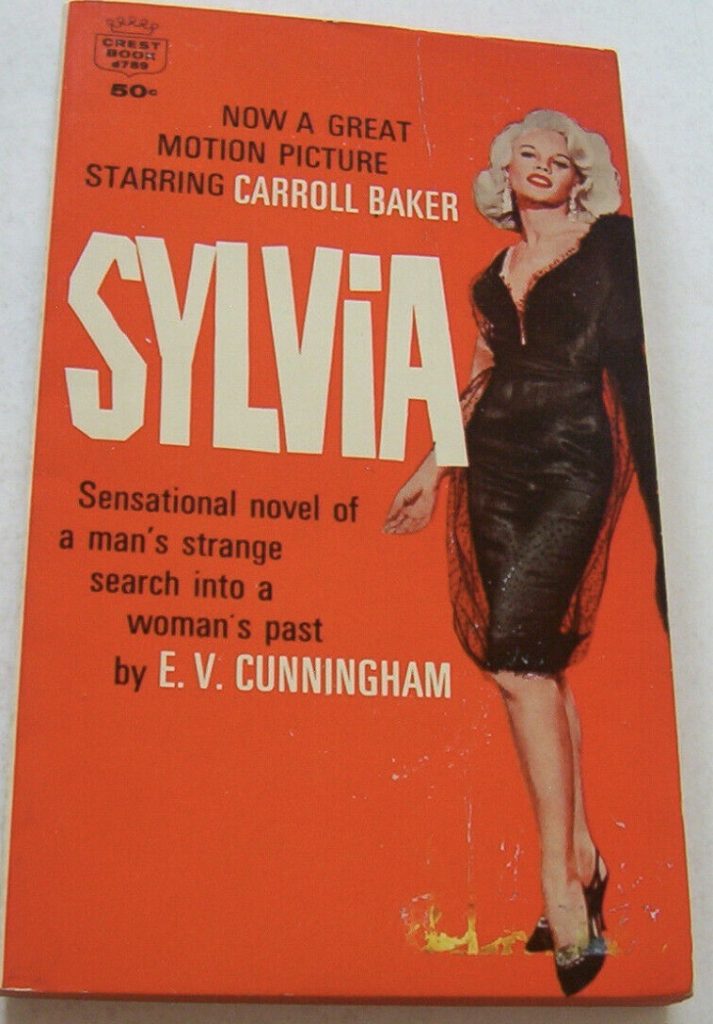
Now, I’ve had a bootleg of the film taped from television for many years, and, I admit I’ve forced unsuspecting friends to sit through it, usually prompting a baffled look when the film was over. But I persist in collecting ephemera from the movie. I have the one-sheet; the movie tie-in paperback novel; the soundtrack album, and best of all- the pressbook, which I bought as a Christmas present for a friend but couldn’t bear to part with.
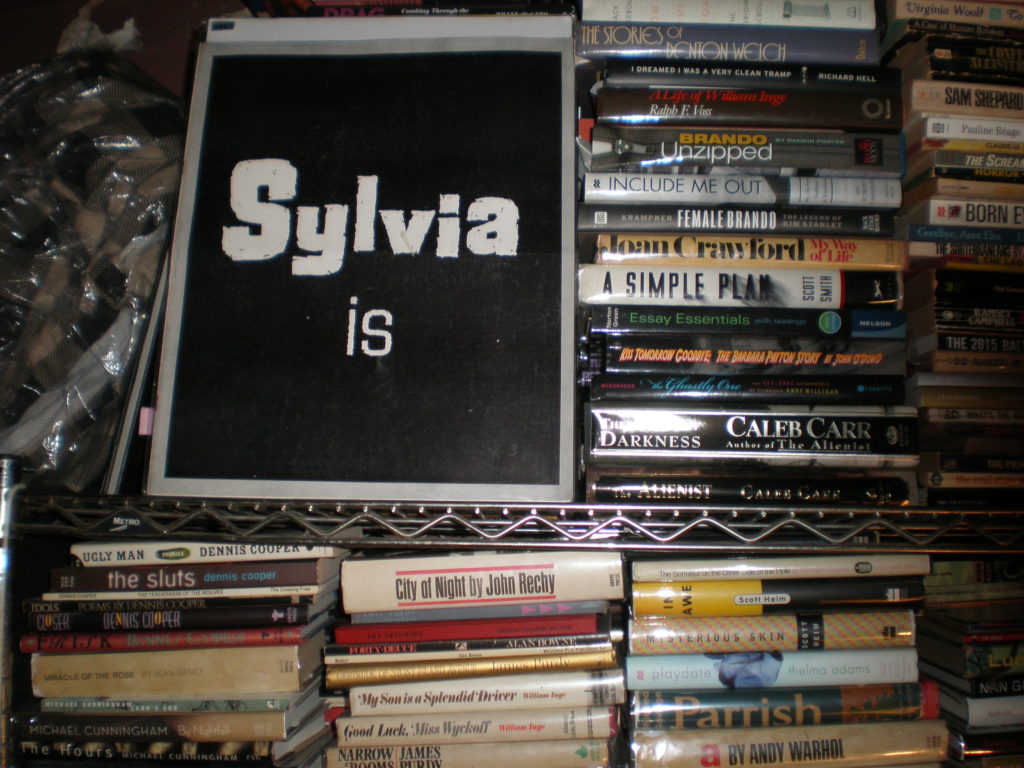
The pressbook has a black cover and the words “Sylvia is” on it. That was the advertising hook for the film, and good friend- director Frank Henenlotter vividly remembers seeing stickers with that logo all over Long Island when he was young around the time the movie hit theaters. I have the pressbook on my bedroom bookshelf and every day when I wake up and see it I burst out laughing. It’s a perfect way to begin a morning.
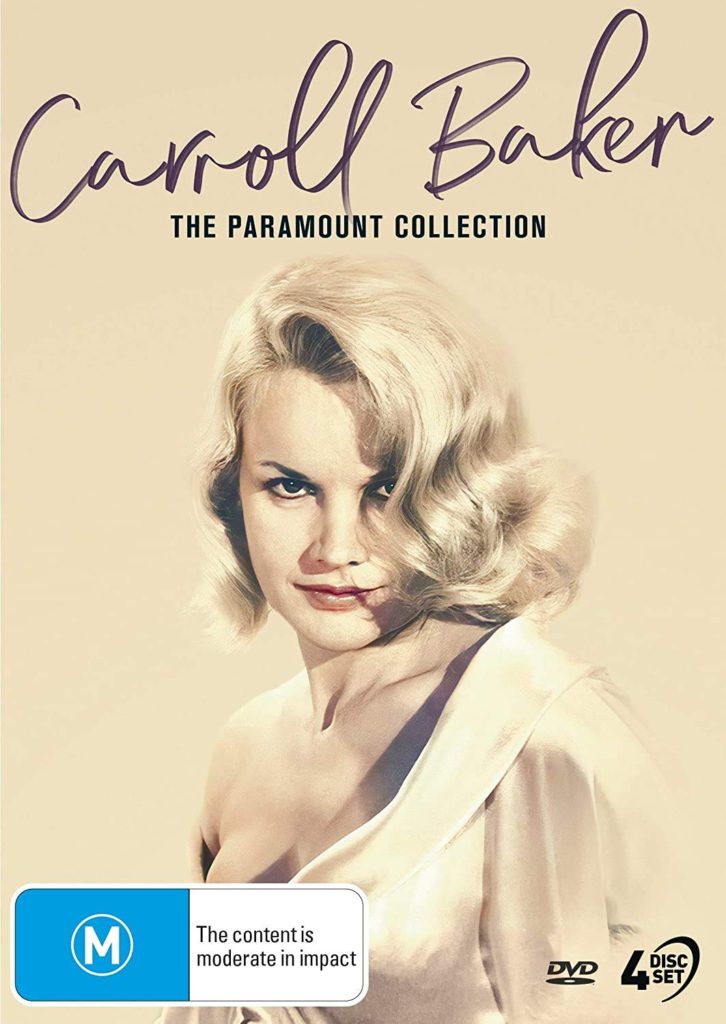
Now the reason I’m bringing this all up is that an Australian DVD has surfaced (that is all region and plays on American DVD players) called Carroll Baker- the Paramount Collection. It includes the wildly enjoyable The Carpetbaggers; the garish bio-pic Harlow; But Not for Me, a comedy co-starring Clark Gable and my personal Holy Grail (for the first time on home media)- Sylvia.
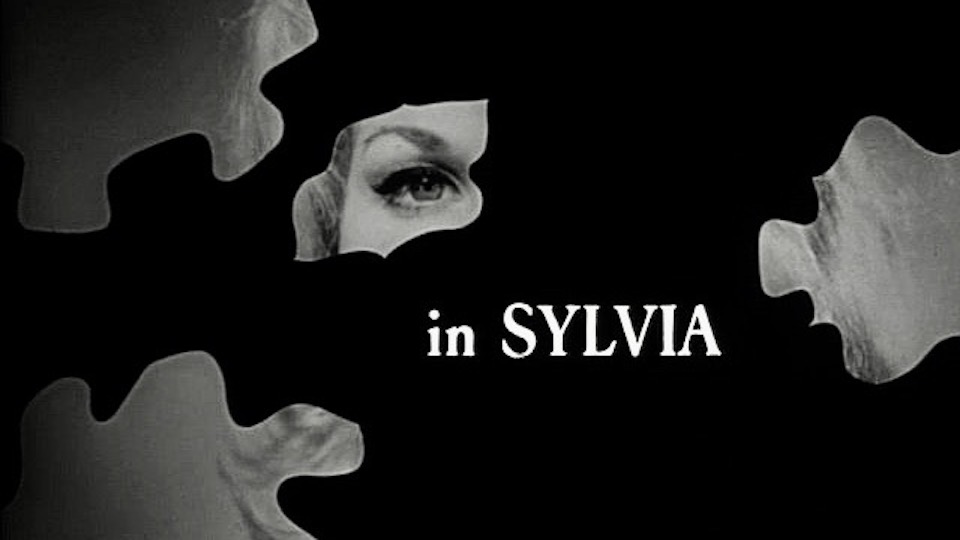
Putting on the disc I almost cried watching the credits to the film- a series of puzzle pieces that eventually reveal Carroll Baker’s glamorous face.
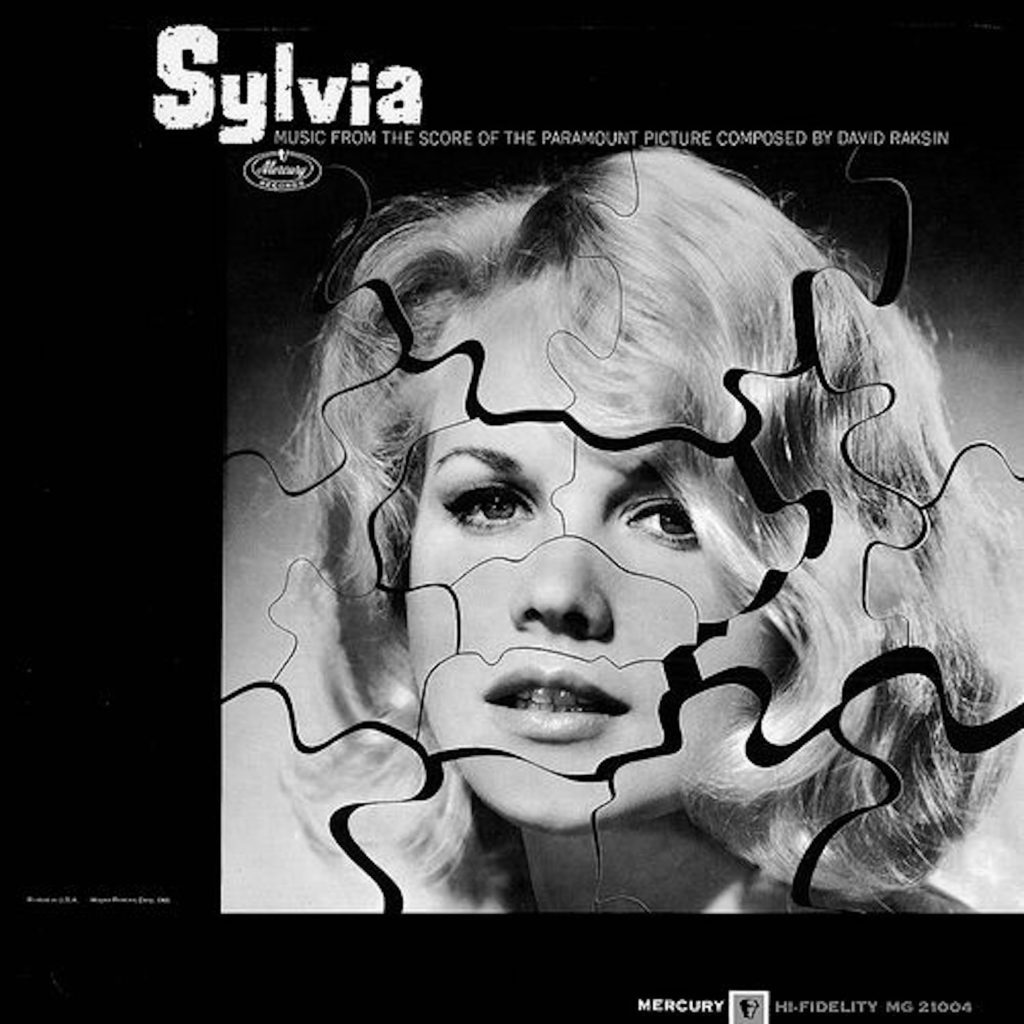
And the credits are accompanied by composer David Raksin’s glorious score. They probably hired him because he did the memorable theme to Laura and hoped lightning would strike twice. John Waters used the main theme song (that was on the soundtrack album) for his film A Dirty Shame, but in the actual movie the theme is sung by Paul Anka, which you can listen to here.
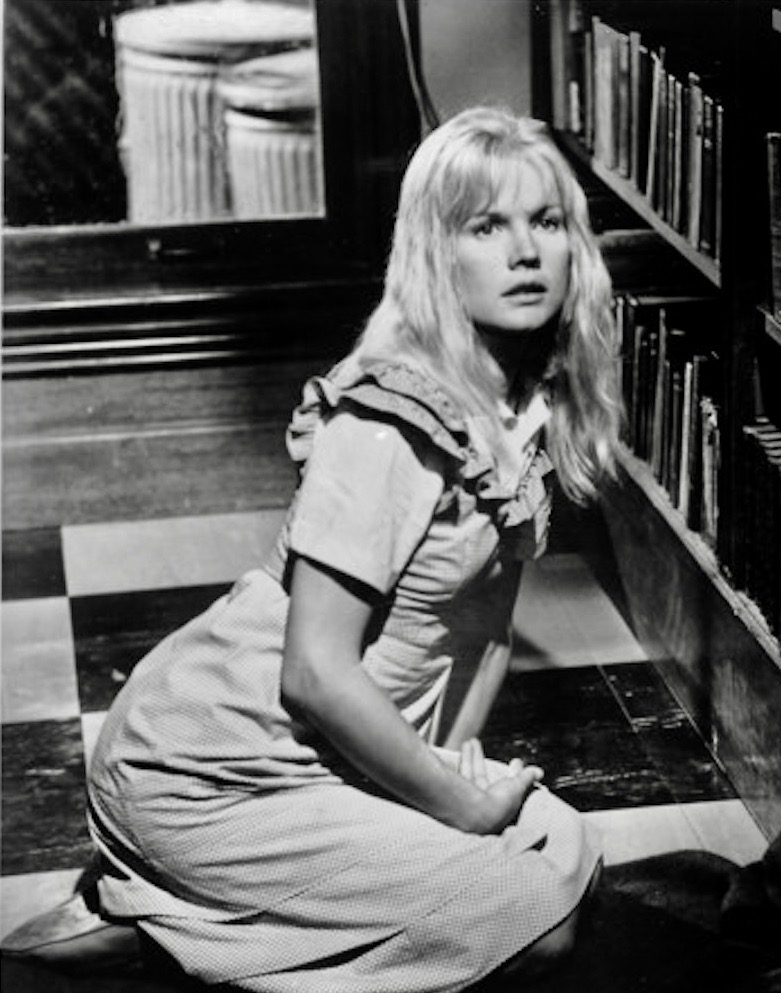
The movie follows the private detective (Maharis) as he follows a lead (based on clues from Sylvia’s poetry book “Moon Without Light”) to Sylvia’s childhood home of Pittsburgh. He luckily meets a librarian (the sublime Vivica Lindfors) who does remember Sylvia well as a pretty, sad, blonde-haired girl who came into the library one day and asked for “a book about a beautiful lady.” The librarian talks about taking the girl under her wing and Sylvia’s hideous tenement home life with a drunken lout of a stepfather (Aldo Ray), who eventually sexually abused her. That’s when Sylvia ran off with a faith healer to Mexico.
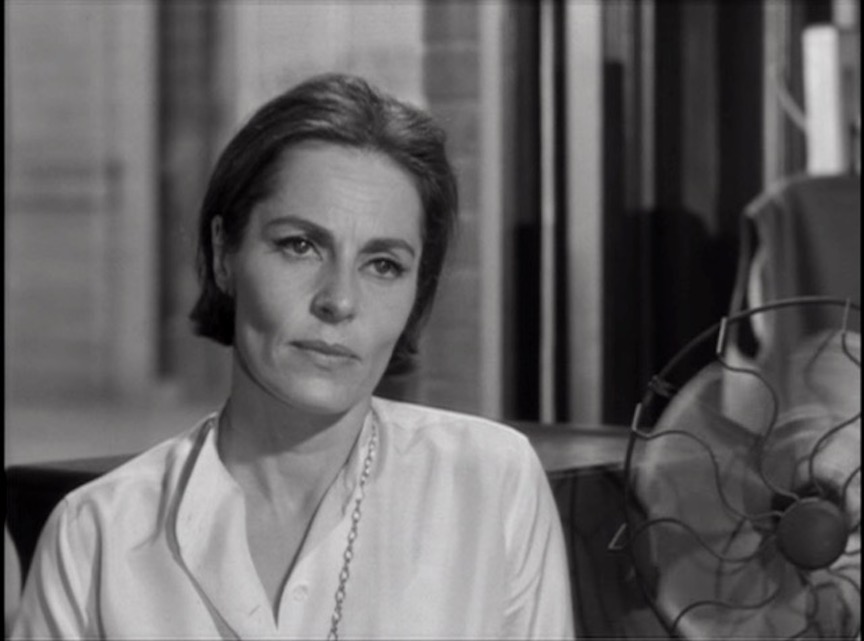
In Mexico, Macklin meets Father Gonzalez (Jay Novello) who shares his meetings with Sylvia “Kay” as she was known there, a prostitute who eventually left town with a traveling dress salesman named Oscar (Edmond O’Brien) and headed to New York City.
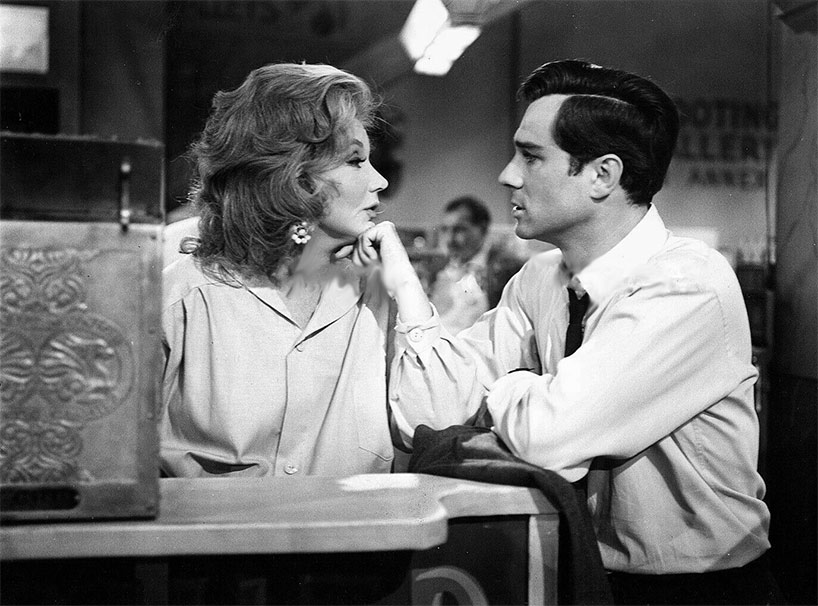
In New York Sylvia landed a job at a honky tonk arcade giving out change. Macklin meets the blowsy co-worker Mrs. Argona (Ann Sothern), who offers to discuss Sylvia only if Macklin takes her out for a fancy dinner. Arriving wearing a gaudy tiara and garish shawl she orders martinis and Beluga caviar. She refers to herself as a “plump old tramp” and talks about how chaste Sylvia was when she lived with her- just reading books or learning French from records. Sothern is just wonderful in this sequence- she’s quite funny and very touching.
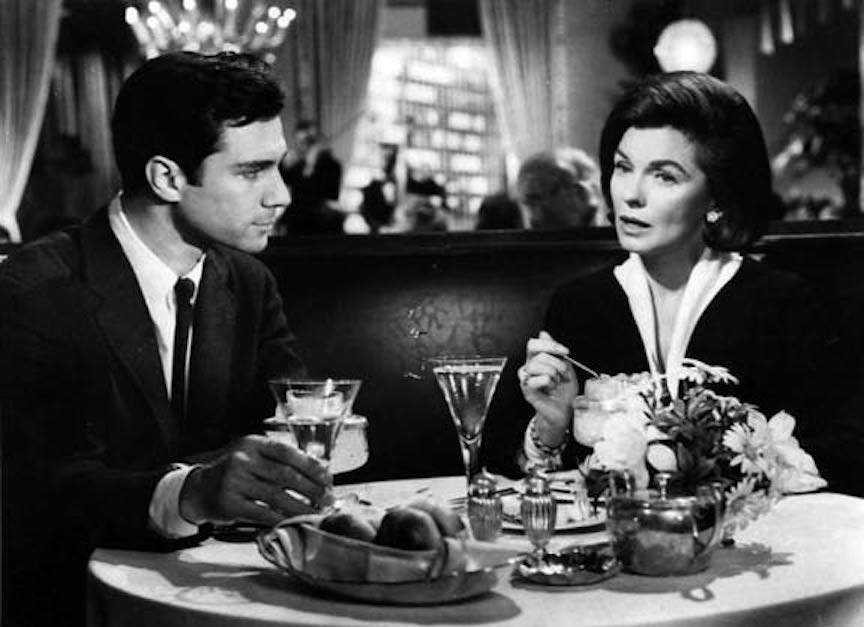
Following a police report about a vice arrest for Sylvia “Carlyle” leads him to a wealthy banker’s wife Jane Phillips (Joanne Dru). Jane tells Alan how she and Sylvia were part of a stable of hookers working for “Mother” (Connie Gilchrist) and after the arrest they both tried to go straight with waitressing jobs. But when Jane is seriously injured badly in a traffic accident, Sylvia returns to prostitution to pay Jane’s hospital bills.
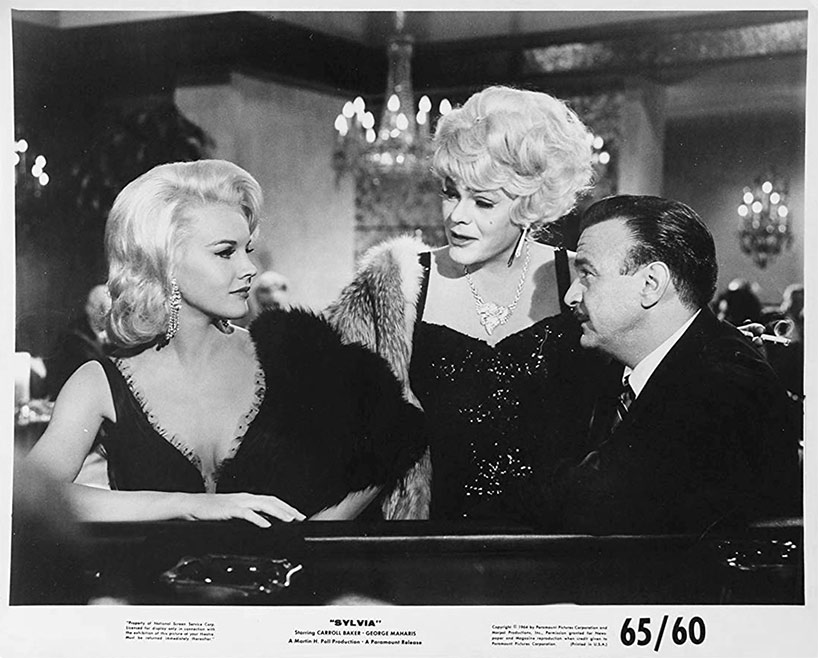
This is when Sylvia goes to work for the notorious transvestite club owner Lola Diamond (Paul Gilbert). There’s also a great scene where Lola does a musical number and finishes by katate-chopping two boards in half, ripping off her wig and lighting a cigar.
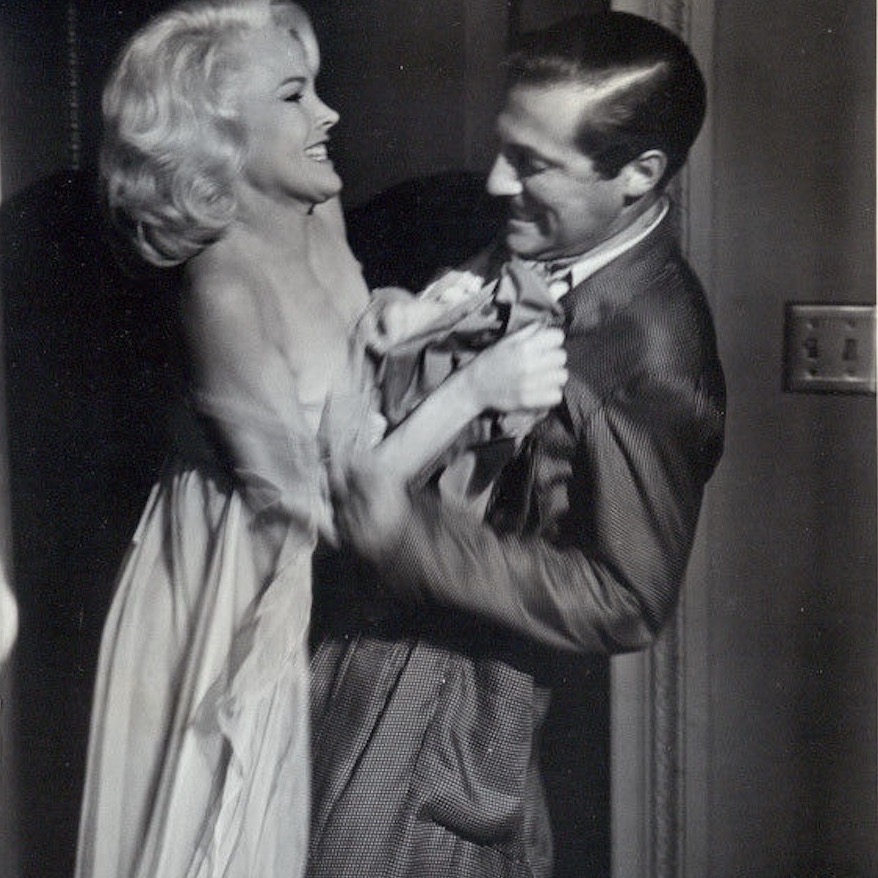
Unfortunately, one of Sylvia’s “dates” is a twisted wealthy married man- Bruce Stamford III (Lloyd Bochner), who shows Sylvia a book of sadistic erotica he has brought with him to the hotel room in his suitcase and asks her what she thinks of it. “It belongs in the trash,” Sylvia says but that’s when Bruce savagely attacks her. Afterwards, a battered, bleeding Sylvia reaches for the phone to call the police but he begs her to keep quiet and that’s how she got $10,000 out of him to change her life. As Jane (Joanne Dru) explains to Macklin, her husband wisely invested the money in the stock market and she totally understood afterwards why Sylvia left her past behind her. “Except for my husband, Sylvia is the only other one in my prayers.”
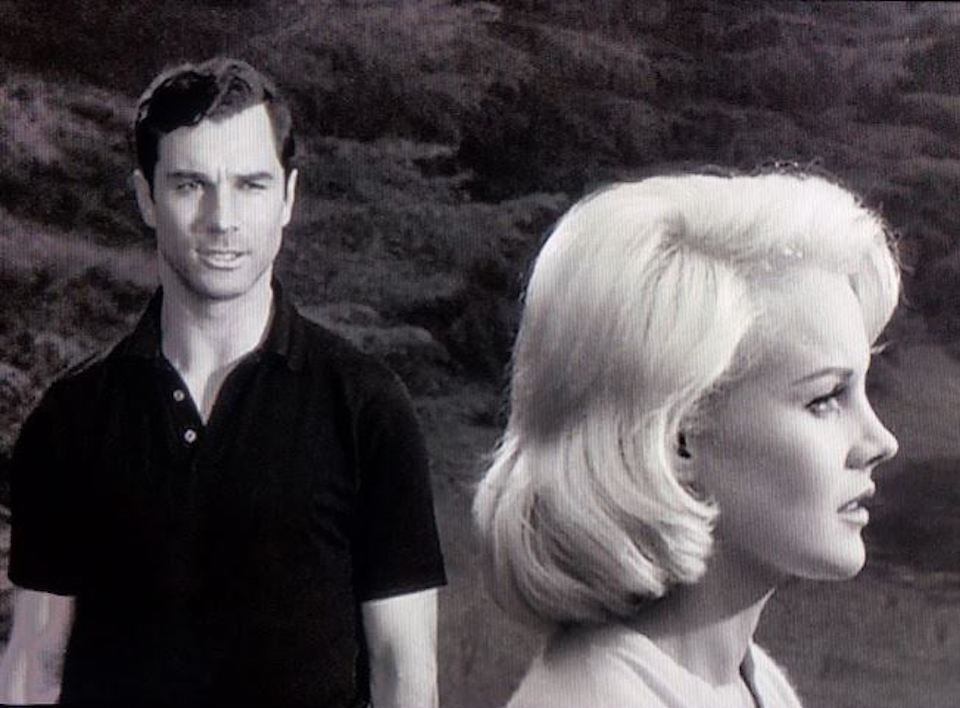
Macklin returns to California torn up by the facts of the case and sets up a cute meet with Sylvia West in a bookstore. He even buys her a “mile long” hot dog (as if the movie needed to get any more sexual). Will Maclkin confess that he has been hired by Frederic Summers to dig up dirt on her? Will Sylvia ever forgive Alan? Will the music swell in the final credits? What do you think? Honestly, I looked back at the ending of the book and the dialogue was nearly word-for-word the same.
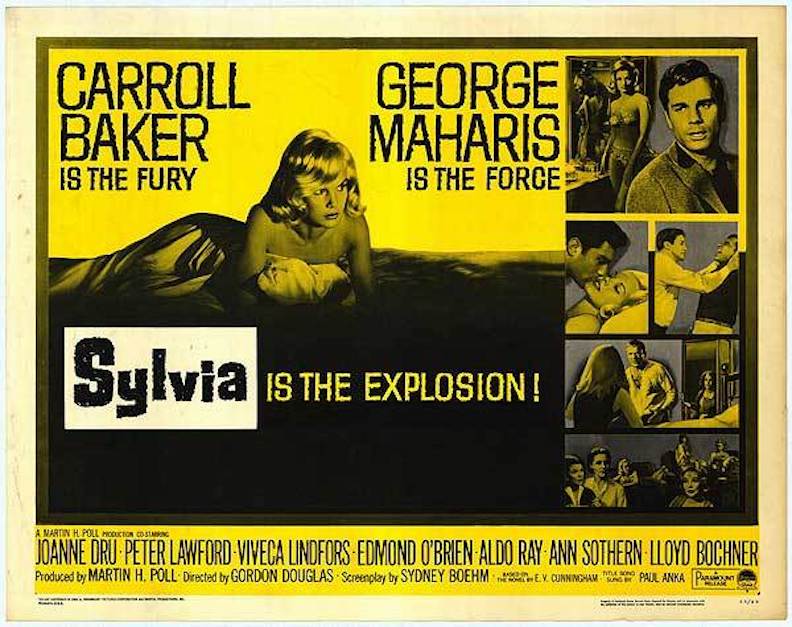
Is Sylvia a good movie? Probably not. But when I see that Paramount logo and see those puzzle-pieces form on the screen during the credits a thrill sweeps through me that doesn’t happen during any other well-regarded classic. Any time I get really blue, I finally have a legitimate DVD to take down off the shelf and slip into my player so that I will once again hear that haunting, stupid-but-wonderful David Raksin theme song and I’ll be singing along:
“Oh!
Sylvia, smile again,
Make my world worthwhile again.
Without you, no sun will shine.
I need your love,
I need your love,
Oh, Sylvia, Sylvia be mine.”
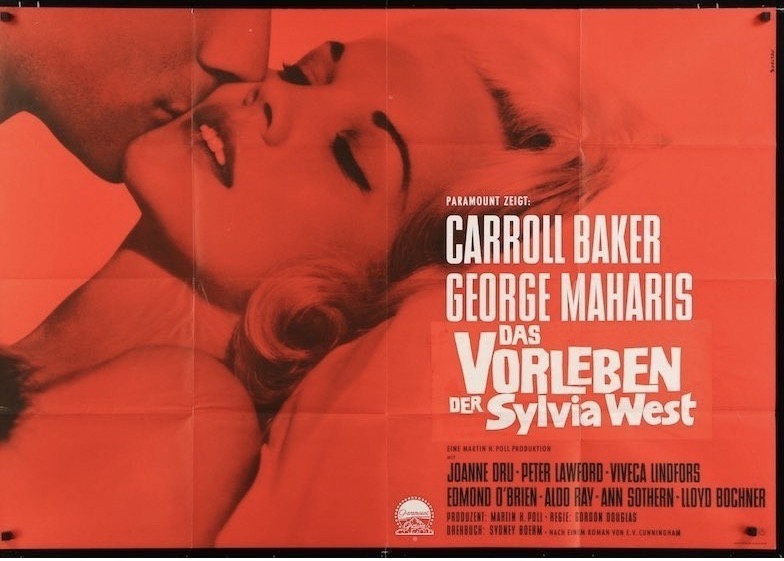

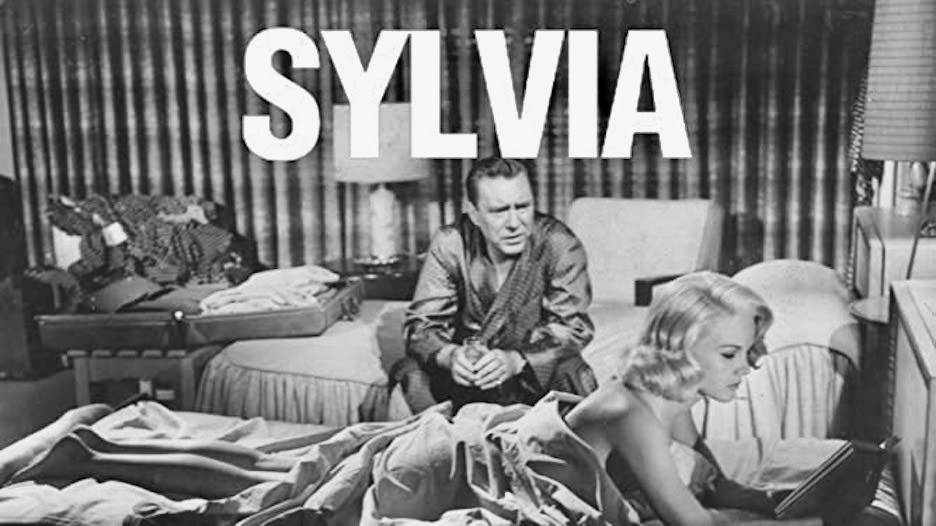
I want to see this one! Dennis you have described Sylvia’s life so well.
I went to see this movie with my mother who thought it was ” maahvelous” and I did too, especially George Maharis. I loved him from Route
66 like you did.
I would love to see this again with a pitcher of martinis close at hand.
Wonderful piece, Dennis!